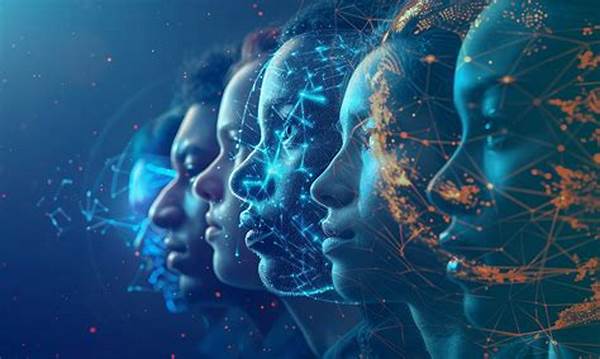H1: Cultural Context in AI Models
The world of artificial intelligence (AI) is vast and evolving, filled with endless possibilities and applications. However, behind the allure of high-tech solutions and efficient algorithms, there’s a cultural narrative that’s critical but often overlooked: the cultural context in AI models. In the past decade, AI has leaped from academia into our everyday lives, subtly influencing how we communicate, consume media, and even make decisions. As this technology grows, so does the awareness of its inherent biases, many of which stem from cultural contexts that are either omitted or misrepresented within AI systems.
Imagine asking a digital assistant for a recipe recommendation and receiving suggestions that don’t align with your dietary restrictions or cultural preferences. This gap is not just an inconvenience; it represents a deeper oversight in AI training models that often fail to appreciate diverse cultural nuances. Despite AI’s objective nature, it is forged by human hands, minds, and, therefore, biases. These biases reflect the cultural imprints of their developers and the data they absorb—a haunting echo of why cultural context in AI models should not be neglected.
Engaging with different cultural narratives is not just about being inclusive; it’s about enhancing the effectiveness and relevance of AI technologies globally. For AI models to be genuinely useful and accepted, they need to reflect the world’s multicultural tapestry accurately. Consumers are more likely to trust and engage with AI systems that understand their unique cultural contexts, as evidenced by numerous studies. This realization not only points to an ethical responsibility but also unveils a unique selling point for businesses aiming to deploy AI on an international scale.
Understanding Biases in AI
Given the intricate nature of cultural contexts, AI challenges us to broaden our horizons. AI models trained predominantly on Western data may overlook or misunderstand norms, languages, and values from other regions, leading to unintentional cultural insensitivity or errors. Consider a global brand launching an advertising campaign driven by AI. Without integrating diverse cultural insights, the brand risks creating content that misfires, potentially offending or failing to resonate with target demographics. Therefore, incorporating cultural context in AI models is not a mere checkbox exercise in diversity but a strategic move to unlock broader market potential.
The Importance of Cultural Context in AI Models
AI models operate on data—lots of it. But the quality of this data often hinges significantly on who produces it and how it’s curated. Cultural context in AI models demands careful attention, yet it provides a rich opportunity to innovate AI solutions that resonate widely regardless of geographical or cultural boundaries.
H2: Navigating Cultural Sensitivities
As AI continues to advance, one of its paramount challenges is navigating cultural sensitivities. While a model might skillfully analyze data patterns, without considering the nuances of cultural context, it risks producing skewed or insensitive results. It’s not just about data accuracy; it’s about empathizing with end-users, acknowledging their unique experiences, and embedding these lessons within AI algorithms. Businesses achieving this balance can create AI solutions that are not only efficient but also beloved, bridging societal gaps and creating new opportunities in markets previously considered unreachable due to cultural barriers.
H2: Examples of Cultural Context in AI Models
Pengenalan tentang Cultural Context in AI Models
Artificial intelligence is an exciting frontier, reshaping industries and altering the way we perceive technology’s impact on humanity. However, amid this excitement, lies the pressing issue of ensuring that AI models are developed with a deep understanding of the cultural contexts in which they operate. Cultural context in AI models is an area of exploration that holds immense potential, both in enhancing the personalization of AI applications and in bridging gaps that technology alone cannot.
In an era where global connectivity is higher than ever, ignoring cultural considerations risks isolating user groups and alienating consumers who demand relevance and respect for their cultural identity. As we dive deep into how technology integrates into our daily lives, it becomes increasingly central to address how the cultural context is respected and implemented from the ground up.
AI’s journey from a novel tech buzzword to an integral part of global enterprises also calls for a more profound commitment to acknowledging diverse cultural landscapes. This commitment results in more robust decision-making tools, offers, and experiences that reflect users’ values and expectations worldwide. Companies and creators have unparalleled opportunities to implement cultural contexts in AI models, transforming them into empathetic and trustworthy digital companions rather than just utilitarian tools.
Sculpting these AI models with cultural finesse isn’t simple, nor is it a one-size-fits-all solution. It demands sensitivity, ongoing learning, and a genuine intent to listen, transform, and improve process and inclusion practices. As AI steadily becomes humanity’s ally in problem-solving, the next step would be creatively including cultural context within AI models to foster global inclusivity and direct impacts across diverse spheres.
H2: Embracing Diversity in AI Models
AI thrives on diversity. Integrating cultural context enhances AI efficacy, ensuring algorithms are more representative and inclusive of global identities across sectors. This diversity paves the way for more innovative AI solutions, breaking barriers previously set by cultural and language differences.
H3: Challenges and Opportunities
However, embedding cultural context in AI models presents challenges. It requires comprehensive data representation, sensitivity in model training, and a proactive stance against potential biases. Addressing these challenges, though daunting, can lead to groundbreaking opportunities for AI to serve as a catalyst for cultural understanding and unity.
Understanding the importance of cultural context in AI models is the first step. The journey, fraught with challenges yet brimming with potential, invites us to rethink and reshape AI technologies to reflect humanity’s rich tapestry as accurately and compassionately as possible.

